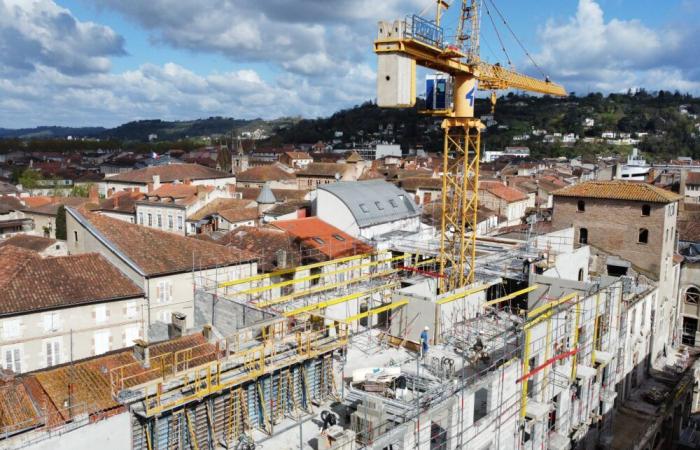The construction sector in Lot-et-Garonne is experiencing a period of turbulence, and although craftsmen do not want to sink into pessimism, the situation is far from rosy. The latest statistics are clear: a drop of 5% in renovation and 11% in new construction. Figures which, according to professionals, portend a delicate economic situation. Artisans today find themselves facing multiple challenges, exacerbated by recent tax measures which risk weighing even more heavily on the sector.
A sector that is straining under the effect of new tax reforms
One of the main points of tension is the increase in VAT on new gas boilers, planned as part of the draft Finance Law (PLF). This measure increases VAT from 5.5% to 20%, which could have a significant impact on consumers and professionals alike. “With this increase in VAT, we can clearly see that it risks slowing down activity. For example, for a boiler costing €5,000, this represents €750 more for the customer. », explains Amar Hocine, carpenter and president of CAPEB 47 This decision is all the more problematic as gas boilers, although considered less ecological than other solutions, are still part of the equipment necessary for the energy transition, especially for old buildings. “We know that we must accelerate the energy transition, but we must do it realistically. We cannot impose solutions like heat pumps in 1970 buildings with collective heating. And then, there is also the question of green gas, which is brushed aside, even though it could be a viable solution. »
Learning in danger
Another serious source of concern for construction professionals concerns training and apprenticeship. Despite the government's ambition to reach one million apprentices, a 10% drop in registrations was observed at the start of the 2024 school year in the construction sector, which raises questions about the sector's capacity to meet the needs of qualified workforce in the years to come.
“We can clearly see that the situation is becoming tense,” underlines Amar Hocine. “Young people are an important lever for the future of the sector, and today, we are losing young people who are no longer heading into construction professions. In addition, aid for learning is decreasing, and that is a real problem. » However, apprenticeship remains one of the keys to the sustainability of the sector, a real springboard for young people who wish to enter a profession, train, and possibly create or take over a business. “Apprenticeship is a social elevator. It allows young people to find stable employment and acquire skills that will offer them real professional opportunities. But if we continue to reduce aid, this jeopardizes the future of the sector,” insists Pierre Bouet, carpenter for the company Abc Toitures and administrator of Capeb. Faced with these uncertainties, craftsmen and construction companies are calling for better visibility in the medium and long term. “We are not here to lament, but we must all be aware that the lights have turned orange” warns Amar Hocine. “The construction sector is resilient, we have always been able to adapt to crises, but this is too much. »







